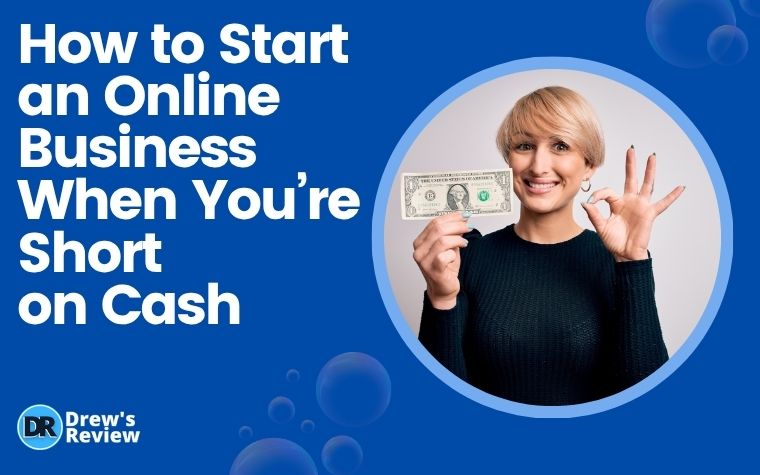
You don’t need a six-figure bank account to build something valuable. These days, clarity, focus, and a willingness to work with what you’ve got separate those who start from those who don’t.
While traditional businesses often start with pitch decks and seed rounds, online ventures can begin with nothing more than a domain name and a few evenings a week.
Whether it’s digital products, skill-based services, or content monetization, there’s room for self-funded founders. Let’s find out how you can start an online business with almost no upfront capital.
Pick a Business Model That Doesn’t Drain Your Wallet
Not all online businesses are created equal when it comes to costs. Some require inventory, licenses, or subscriptions, while others are incredibly lean. Here are a few models that stand out for low barriers to entry:
- Freelance services. Think about the skills you already have that can be turned into income with zero investment beyond time. It can be writing, design, coding, or consulting.
- Digital products. E-books, templates, online courses, or digital art allow you to create them once and sell them repeatedly.
- Dropshipping. This business model allows you to act as the storefront while your supplier handles the shipping and storage. Profit margins are slim, but there’s little risk.
- Affiliate websites. Monetize content by recommending products and earning a commission. This option requires no expenses for customer support or inventory.
- Info-based newsletters or niche communities. Platforms like Substack or Discord allow creators to monetize content and build direct relationships with audiences.
Build the Business With Free Tools
Forget about fancy software subscriptions at this stage. Many successful entrepreneurs began their journeys using free or nearly free tools. For website building, try Carrd for quick one-pagers or WordPress with free themes.
When it comes to design, Canva can cover most needs, from logos to social banners. To receive payments, consider Stripe and PayPal, which are free to set up and take a small cut per transaction.
Platforms like MailerLite or ConvertKit offer free tiers that work perfectly for early-stage email marketing. To stay organized, use Notion, Trello, or even Google Docs. Don’t get lured into upgrading early. Paid tools often upsell aggressively, but most free plans offer everything you need for launch. Focus on traction before features.
Budget Smartly

Cash flow is king, especially when it barely exists. Without outside funding, every dollar needs to be counted. The first step is setting strict, realistic limits. Start by mapping out essential monthly costs. They typically include domain registration, hosting, internet connection, basic design and branding (if you can’t DIY), and paid ads.
Cut everything else unless it contributes directly to growth or revenue. For example, don’t buy a course if you can find the same knowledge on YouTube. A good rule: if the tool doesn’t make you money in 30 days, don’t subscribe to it.
Start Making Money Before You Spend It
One of the smartest moves for new entrepreneurs is to monetize early, even before your product is finished. You don’t need to wait for a perfect launch. Instead, focus on early traction.
Consider offering pre-orders on a product or service through Gumroad or LemonSqueezy. Sell a beta version or pilot workshop to make money and get feedback from users or customers. A waitlist can help you test pricing and interest and better understand what your clients need.
Consider Extra Financing
Not every startup expense can be avoided. Even the leanest online businesses face unavoidable costs, such as a domain name renewal, a small ad budget, or an upgraded tool to keep things running. If you’ve already minimized spending and still hit a financial wall, safe financing for new founders can fill the gap.
When used smartly, these options can enable growth that wouldn't be possible otherwise. Still, the key is purpose. Never borrow unless the expense is directly tied to increasing your business’s income or capability. Investing $100 into ads that bring in $400 in sales sounds quite smart.
Grow Small, Grow Smart

After you’ve launched, the temptation is to scale fast. But rushing can kill momentum. What works instead is iterating with intention. Gather feedback from every early customer or subscriber.
Watch where users drop off, what emails get clicks, and which landing pages convert. Test one small change at a time — a new headline, a simpler product, a shorter form.
Growth begins when you do more of what works and cut what doesn’t. If you’re running a content business, double down on the topics or formats that bring organic traffic. Selling a product? Study returns and reviews more than Instagram likes. Offering a service? Your second client teaches you more than your tenth follower.
Use Community Instead of Capital
Money isn’t the only resource that helps a business grow. Sometimes, connection is worth more than capital. Online founders have an edge here. Digital communities are everywhere, and most of them are free. Join spaces where others share wins, failures, and tools.
Some popular places include Indie Hackers (tech/product focus), Reddit subs like r/Entrepreneur, r/SmallBusiness, r/SideProject, X (search for micro-entrepreneurs and follow threads), and Slack or Discord groups focused on your niche.
By doing this, you’ll find collaborators, testers, early adopters, and even your first paying customers. Sometimes, the right comment from another founder saves you from wasting three weeks on the wrong strategy. If you're building in public, communities also help with accountability and trust.
Build Discipline
Launching a business without much money forces you to build a focus. When every tool, every ad, and every hour matters, you quickly learn what moves the needle and what’s just noise.
Startups that begin on a shoestring budget often become stronger in the long run. They’ve already built lean systems, validated ideas cheaply, and avoided bloated spending habits. Their founders know how to prioritize, how to solve problems without throwing money at them, and how to grow at a sustainable pace.
Final Thoughts
Starting an online business doesn’t require much money. You just need to plan thoroughly, test your niche, and create a service or product that matches your target customers. We hope this guide will help you generate income without much investment at the early stage.
- All About Optimizing Healthcare SEO with E-E-A-T - February 12, 2026
- How Technology Is Empowering AI-Driven Enterprises Today - February 5, 2026
- Best Digital Advertising & Marketing Agencies in Calgary - February 2, 2026
